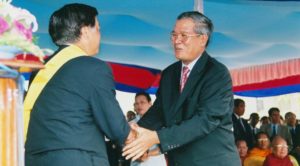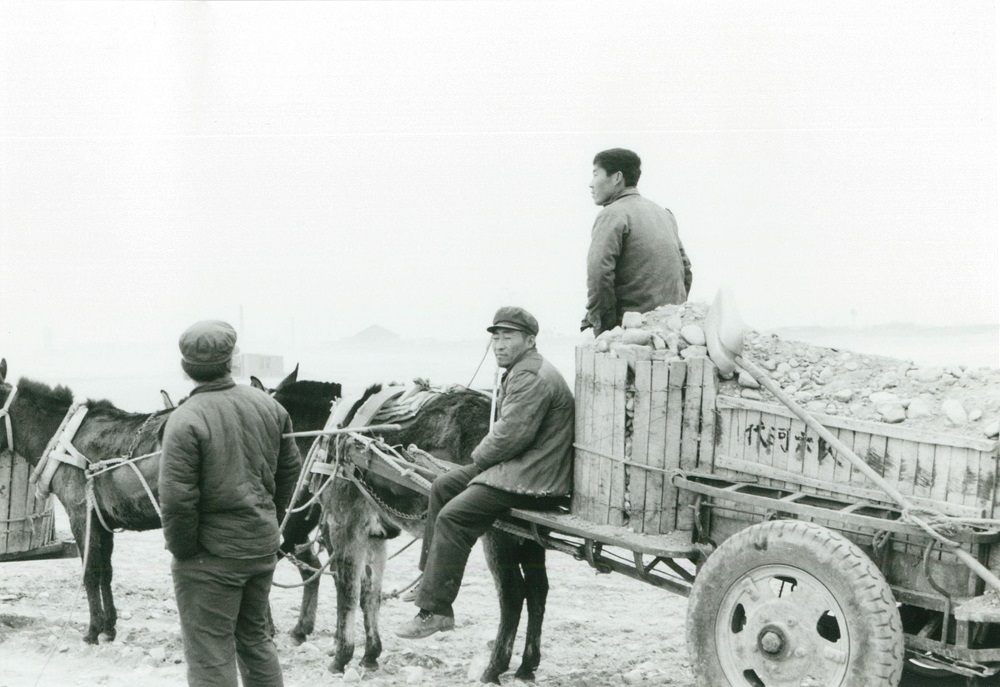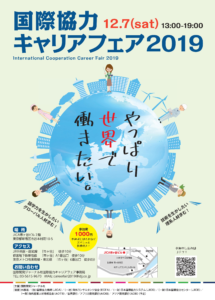Cambodian Prime Minister Hun Sen runs to dictatorship
picture:Cambodian Prime Minister Hun Sen shaking hands at the opening ceremony of Cambodian-Japan Cooperation Center (CJCC) ©The International Development Journal Co., Ltd.
IDJ ENGLISH
『International Development Journal』 2019 November edition
Hun Sen’s distrust to the United States
“Hun Sen is attracted by China’s one-party dictatorship”. Such views on Cambodia’s Prime Minister, Hun Sen, are spreading internationally. In particular, the United States and European countries are feeling the danger of human rights abuses as democracy declines.
In September 2017, the opposition first party, the leader of the Cambodia National Rescue Party, Kem Sokha, was arrested for alleged attempts to overthrow the state with US support. Subsequently, the Supreme Court ordered the party disbanded and a five-year suspension of political activity involving 118 people. On August 23 this year, Vice-President of the Cambodia National Rescue Party, Mu Sochua arrived in Japan and told a newspaper interview that they should “regain democracy and overcome excessive dependence on China.”
In the 2017 local councilor election, the Rescue Party gained a vote of 43.8%, compared to 50.8% of the Cambodian People’s Party led by Hun Sen, a result that exacerbates Hun Sen’s sense of crisis. Indeed, a political force has emerged that undermines Hun Sen’s standing. Thus, under a judicial system suspected of neutrality, he would have legally buried his political opponent.
Secondly, the Hun Sen Administration has ordered the closure of media and NGOs criticizing Hun Sen. For example, the English-language newspaper Cambodia Daily has been discontinued, as well as the US-supported radio stations Radio Free Asia and Voice of America closed in Phnom Penh. In relations with NGOs, NGOs that monitor elections have been shut down, and the NGO Cambodia Human Rights Center has been warned under the NGO law of suspension.
Hun Sen’s distrust in the United States is deep. For Hun Sen, distrust of the US may stem from the Vietnam War, itself. In addition, the US, feared of communization of the Indochina Peninsula, in 1970 when Norodom Sihanouk, then head of state, was ousted in a coup by Republican General Ron Knoll during one of his excursions. It is alleged that Hun Sen’s distrust of the US deepened.
For Hun Sen, it may be perceived that US internal interference has begun under the name of democracy and liberalism. However, even if Hun Sen states that “Cambodia has Cambodian democracy”, it is clear that the current Hun Sen style is trying to defeat political opponents and proceed to a one-party dictatorship.
“Gorbachev in Cambodia”
Here is a book titled “Cambodian PKO Diary (December 1991-September 1993)” by Yasushi Akashi, a former special representative of the United Nations Transitional Authority in Cambodia (UNTAC), which contributed to rebuild Cambodia. In this book, he said that Hun Sen is the other protagonist of the peace process after Sihanouk and became the leader in Phnom Penh’s administration on behalf of Hen Samling. (Hen Samling, along with Hun Sen, joined the Pol Pot faction in 1978 and escaped from the faction, fled to Vietnam. They advanced to Cambodia with the support of the Vietnamese military, and expelled Pol Pot.)
The beginning of Cambodian peace began in December 1987 with a meeting between Sihanouk and Hun Sen in France. The People’s Party, led by Hun Sen, governed virtually all of Cambodia and was the only party with an executive branch. Hun Sen, himself, was also good at practical skills and became one of the party leaders at a young age, according to the diary.
Mr. Akashi mentioned that Hun Sen, as “Gorbachev in Cambodia”, changed the People’s Party from a rigid old socialist constitution, and, at the same time, worked hard on UNTAC’s peace process.
However, what is the view of Hun Sen more than 25 years ago, Akashi stated in his diary: “Although the general election is largely democratic, there is concern that PM Hun Sen’s stance is becoming somewhat dictatorial. Among the political protagonists at the time, Norodom Sihanouk’s death in 2012, the first Prime Minister, Ranariddh, effectively lost his power struggle with Hun Sen and left the Cambodian political scene. After Pol Pot died in 1998, Khieu Samphan representing the Pol Pot’s faction, he was also tried as a defendant in the Cambodian Special Court judging the murder during Pol Pot’s era”.
In other words, none of the leaders who participated in the creation of new Cambodia date before Hun Sen. It points to Hun Sen’s tenacity. It is not unusual for Hun Sen to be a strategist and a schemer at the same time.
It is difficult to understand that the feeling that “the new Cambodian is Hun Sen”, but if you are going outside of the main course of democratic governance and use power to your advantage, he is a dictator. It is also different from the one-party dictatorship of the Chinese Communist Party, which Prime Minister Hun Sen is recently committed to. The unity of the Association of Southeast Asian Nations (ASEAN) is at stake.
Responsibility of Japan as a major donor country
A word at the end. In the early days of the Cambodian nation during the UNTAC era, Hun Sen sometimes suffered two casualties, and in the subsequent nation-building he built a steady economic and living infrastructure. Only Japan has implemented human resource development using official development assistance (ODA). At this rate, Hun Sen will be fully incorporated into China. Already, the issue of territorial rights in the South China Sea has been incorporated into China’s claim to turn away from ASEAN’s intentions. Hun Sen’s actions are now a major issue for ASEAN unity. That could also undermine Prime Minister Shinzo Abe’s “Free and Open Indo-Pacific” vision.
Until now, Japan has maintained in a position of non-interference in domestic politics. It is clear from the past that Japan prioritized commercialism and trade-oriented policy to get along with every country. Japan didn’t intervene at all in the administration of Philippines’ President Marcos, Indonesia’s President Suharto or the Thai military government, when they had serious human rights issues.
If Japan continues to provide its ODA to Cambodia, Japan should cleverly advise Prime Minister Hun Sen on the idea of fostering a healthy democracy in Cambodia. That is desirable for ASEAN and a healthy ASEAN is also desired for Japan in Asia.
By Mitsuya Araki, Editor-in-chief of IDJ
*****以下、日本語原文*****
羅針盤 独裁へ走るフン・セン首相 日本は良き助言者たれ
対米不信強めるフン・セン首相
「独裁色を強めるカンボジアのフン・セン首相」「中国の一党独裁に魅了されたフン・セン」という見方が国際的に広まっている。特に欧米は民主主義の後退、人権侵害への危機感を深めている。
2017年9月、野党第一党である救国党のクム・ソカー党首が、米国の支援で国家転覆を図った疑いで逮捕された。その後、最高裁判所は党の解党と、118人に及ぶ政治活動の5年間の停止を命じた。今年の8月23日、その救国党幹部(ム・ソチュア副党首)が来日し、新聞インタビューで「民主主義を取り戻し、過度の対中依存から抜け出すべきだ」と訴えた。
救国党は2017年の地方評議会議員選挙で、フン・セン率いる人民党の得票率50.8%に対して、43.8%という得票率を獲得し、フン・センの危機感をあおるような結果を出している。まさに、フン・センの足元を崩す政治勢力が出現したのである。そこで、中立性が疑われる司法制度の下で、合法的に政敵を葬ったことになる。
次いで、フン・セン政権はフン・センを批判するメディアやNGOの閉鎖を命じている。例えば、英字新聞『カンボジア・デイリー』の廃刊、米国支援のラジオ局「ラジオ・フリーアジア」と「ボイス・オブ・アメリカ」プノンペン支局の閉鎖などがある。NGOの関係では、選挙を監視するNGOが閉鎖され、されにNGO「カンボジア人権センター」がNGO法に基づいて活動停止の警告を受けている。
フン・センの対米不信は根深いものがある。フン・センにとって対米不信はベトナム戦争そのものかもしれない。加えて、1970年に当時国家元首であったノロドム・シハヌークが、外遊中に共和派のロン・ノル将軍によるクーデターでその座を追われた際、その背後にインドシナ半島の共産化を恐れる米国がいたという疑惑が、フン・センの対米不信を深めたと言われる。
フン・セン首相にしてみれば、民主主義、自由主義の名の下で米国の内政干渉が始まっていると受け止めているのかもしれない。しかし、フン・センが「カンボジアにはカンボジア流の民主主義がある」と言ったとしても、今のフン・セン流儀は政敵を倒し、一党独裁へ進もうとする姿が丸見えである。
サバイバルに強い革命児
ここに、混迷のカンボジアを立て直した国連カンボジア暫定統治機構(UNTAC)の特別代表を務めた明石康氏の著書『カンボジアPKO日記-1991年12月~1993年9月』(岩波書店)がある。その中で、フン・センについてこう述べている。「もう一人の和平プロセスの主人公(シハヌークに次いで)は、人民党リーダーのフン・センと言ってよいであろう。フン・センはヘン・サムリンに代わり、プノンペン政権でリーダーの地位についた人物である(ヘン・サムリンはフン・センと共に1978年にポル・ポト派に属しながら同派から離脱してベトナムに脱走し、ベトナム軍の支援を受けてカンボジアに侵攻し、ポル・ポト派を放逐した同志)。
カンボジア和平のきっかけも、1987年12月にシハヌークとフン・センとのフランスでの会議から始まった。フン・セン率いる人民党は実質的にカンボジア全土を統治しており、行政府を有する唯一の党派でもあった。そしてフン・セン自身は実務能力にも長け、若くして党の指導者の一人になった」と、この日記には書かれている。
明石氏は、フン・センを「カンボジアのゴルバチョフ」と半分おだてながらも、フン・センと人民党が硬直した古い社会主義の体質から脱皮させ、同時にUNTACの和平プロセスにしっかり取り組むことの重要性を認識していた、と書いている。
しかし、25年以上経った今日のフン・センをどう見ているかと言えば、明石氏は日記でこう述べている。「総選挙はおおむね民主的に実施されているが、フン・セン首相の姿勢はやや独裁的になりつつあるとの懸念も持たれている。当時の政治的主役のうち、シハヌークは2012年に死去し、第一首相のラナリットは事実上フン・センとの権力闘争に敗れ、カンボジア政治の表舞台から去った。ポル・ポトも1998年に死去し、同派を代表していたキュー・サンパンはポル・ポト時代の虐殺を裁くカンボジア特別法廷で被告として裁かれた。」
つまり、フン・センの前には新生カンボジアづくりに参画したリーダーたちは一人もいなくなった。その意味で、フン・センのねばり勝ちの観がある。それはまた、フン・センがまれに見る戦略家であると同時に、策略家であったと言えないこともない。
「新生カンボジアの立て役者はフン・センだ」という気持ちになっていることは理解できないわけではないが、だからと言って民主的統治の本道からはずれて、自分に都合の良いように権力を使うならば、それはどう見ても独裁者である。それはまた最近、フン・セン首相が傾倒する中国の共産党一党独裁とも異なるものである。東南アジア諸国連合(ASEAN)の団結が危うい。
援助国日本の責任
最後に一言。もし、フン・セン首相にアドバイスするならば、カンボジア国家の創成期に、先のUNTAC時代から、時に二人の犠牲者を出しながら、その後の国家建設で地道に経済インフラ、生活インフラの整備や人材育成を政府開発援助(ODA)を使って実施してきたのは日本しかいない。このままだと、フン・センは中国に完全に取り込まれる。すでに南シナ海領有権問題も、ASEANの意向に背を向けるように中国の主張に取り込まれている。フン・センの行動は今やASEANの団結にとって大きな問題になっている。それはまた、安倍晋三首相の「自由で開かれたアジア太平洋」構想の一角を崩すことになりかねない。
しかし、これまで日本は内政不干渉の立場を貫いてきた。どの国とも仲良くするという商業主義、貿易主義を優先させてきた過去を見ても歴然だ。フィリピンのマルコス大統領、インドネシアのスハルト大統領、タイの軍事政権に対しても、重大な人権問題が起こっても没干渉であった。もし、これからも援助(ODA)を続けるならば、ここらでカンボジアの健全な民主主義を育てるという考えに立って、日本は静かにフン・セン首相にアドバイスすべきではなかろうか。それは、ASEANにとっても望ましいことだと言える。アジアの中の日本にとっても健全なASEANが望まれるからだ。
『国際開発ジャーナル』主幹 荒木光弥
『国際開発ジャーナル』 2019年11月号掲載記事





